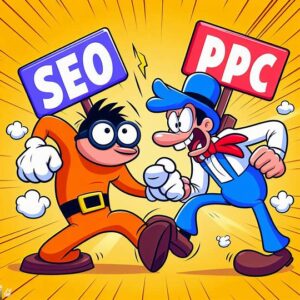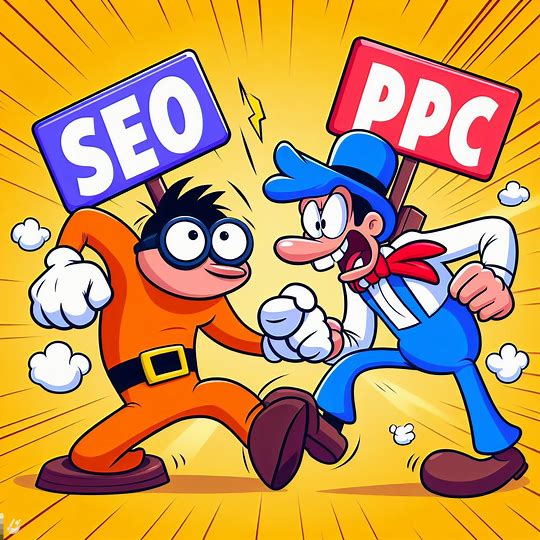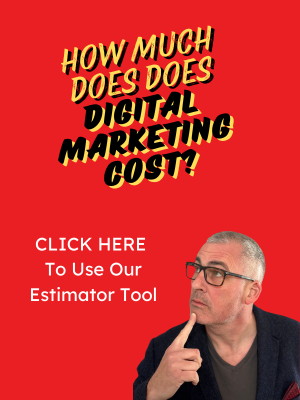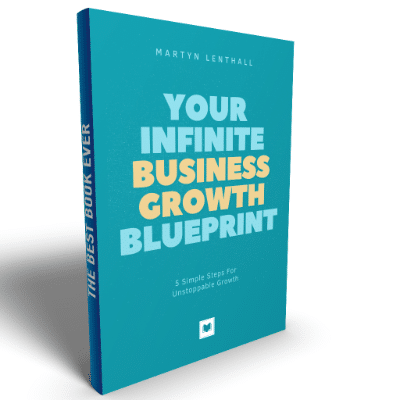SEO versus PPC: Lead Generation for Businesses
 The success of any online business profoundly depends on the ability to generate traffic. Having more visitors streaming to your site means more leads and sales for your business. Even though you can generate web traffic through a host of ways, the two leading methods for turning web leads into customers are SEO and PPC.
The success of any online business profoundly depends on the ability to generate traffic. Having more visitors streaming to your site means more leads and sales for your business. Even though you can generate web traffic through a host of ways, the two leading methods for turning web leads into customers are SEO and PPC.
So which method is superior to the other? Well, there’s no definitive answer to this question, even though it’s been asked countless times. The two methods do have their pros and cons as we will learn shortly. Understanding which method is suitable for your business will ultimately depend on your market sector, circumstances, goals, budget or any other substantial reason.
Remember, there are instances where it will make more sense to combine the two methods to attain more traffic for your business. In this post, however, we’re going to answer the classic question that most marketers often ask regarding SEO vs PPC. As well as which option of the two is ideal for promoting your business online.
Defining SEO and PPC
SEO: The Long Game for Organic Traffic and Sustainable Growth
Search Engine Optimization is a methodical process aimed at increasing organic traffic to a website. This strategy involves a combination of on-page optimisation, off-page SEO, and link building. A core element of SEO is targeting long-tail keywords, which are less competitive and more specific, potentially leading to higher conversion rates.
The strength of SEO lies in its ability to generate long-term results. While the initial phase of SEO can require an ongoing investment, the eventual payoff is substantial, particularly for businesses operating with a limited budget. A well-executed SEO strategy not only improves a website’s visibility in search engine results but also establishes credibility and trust with potential customers
SEO can simply be described as a continual process of tweaking on-page and off-page elements to enhance the position of a website in search results. Websites that rank on the first page of Google pull in the majority of traffic coming from search engines. The same cannot be said of sites on the second page and beyond.
On the other hand, PPC can be defined as paid advertisements displayed on top and below organic search results. PPC ads produce instant results, though they may cost a lot of money depending on the target keywords or search terms.
SEO vs PPC: Which method is superior?
We’ll first discuss the pros and cons of SEO before delving into PPC advertising for the same. Being able to pinpoint where the two methods can best be utilised is the key to acquiring more traffic and leads for your business.
Benefits of SEO:
Help increase awareness about your business
When your website ranks favourably in search engine results for several target keywords, it means more people can access your content and core offers and products. Over time, people become aware of your brand and the solutions you present in the market.
Grows your brand online
Every time your website appears on the first page for certain commercial or buyer terms, it gains authority in the eyes of searchers. Having authority on a particular subject can have heaps of branding advantages, as more people start to rely on your advice when making vital buying decisions. In the end, building a strong brand online can help your site realise more traffic and leads each month.
Establishes credibility and trust
The majority of online shoppers trust organic results over paid ads when searching for products or services online. This means you’ll likely have more steady leads and sales if you focus on boosting your website in search results over paid ads. Adding reviews and other reputation signals or your page can increase your credibility and trust even further.
The potential for web traffic to increase is high
A rock-solid optimisation strategy can yield sizable traffic for your business. The good thing about SEO is that as your rankings improve, your site gains more traffic that you can convert into customers. In short, attaining good ranking positions for several keywords can bump up your business revenues by a great deal.
Low-cost traffic
Traffic coming from organic search won’t cost you anything. Of course, you’ll have to spend some money with an SEO Agency or on writing quality content and building links to do well in search. After accomplishing good rankings, you won’t be charged for clicks coming to your site.
Has a great ROI
Organic search traffic tends to convert better than paid ads in most niches. People trust organic results more than sponsored ads when searching for information on the internet. Your business will generate leads in the long term if you focus on improving your site rankings.
It’s more cost-effective
The may seem high when starting, especially if you cost the implementation of hiring SEO internet marketers to help out from the start. However, good rankings will, in the end, justify your heavy outlay in the end. Overall, it’s more cost-effective to optimise your site for organic search than to rely on paid advertisements in the long term.
It’s more sustainable
Even though search engine optimisation can be a lengthy exercise, the results yielded from your hard work can last for a long period. On the flip side, PPC depends on your ability to spend consistently. Once your ads stop running, Google stops sending traffic to your site.
Improved click-through-rate (CTR)
Since most searchers (and your potential customers) trust organic results over paid ads, sites ranking on top of the first page will most likely receive more visits from users than paid ads. Research has shown the click-through rate for organic search trumps paid ads in most verticals.
SEO has long-term benefits
SEO can be a strategic asset to your business if you play the long-term game. Though SEO takes time to implement, the results can be profound for your business since you’ll be getting free leads every day. You’ll certainly have a strategic advantage over competitors using paid search ads to generate leads.
SEO disadvantages
Slow to yield results
It’s not all rosy for SEO, however, as there are disadvantages to using this traffic generation as well. Organic growth can be slow and frustrating in the early stages, as your site gains a foothold in the Google search index. This means you can’t rely on SEO to provide your business with instant leads.
Its success is tied to quality content
In addition, search engine optimisation success very much relies on quality content. Good content can generate quality backlinks automatically, while poor content has no chance of picking up any valuable links. If your business doesn’t have enough budget to buy quality content regularly, it’s going to be difficult to compete with big brands spending huge marketing budgets on content marketing.
PPC (Google Ads) Advertising Advantages
PPC: Quick Wins with Instant Visibility and Targeted Reach
On the flip side, PPC offers instant visibility, making it an ideal choice for meeting short-term goals. This approach involves creating ads that appear at the top of search engine results, providing immediate exposure. PPC campaigns, especially those including social media ads on various platforms, allow for precise targeting based on demographics, interests, and even the time of day.
PPC is particularly advantageous for businesses that need to test market reactions quickly or launch new products. Although it requires a continual investment, PPC can offer a positive ROI if managed effectively. Tools like Google Analytics play a crucial role in monitoring the performance of PPC campaigns, helping businesses to make data-driven decisions.
Even though search engine optimisation has a better click-through rate and is trusted more by web searchers, there are instances where PPC advertising may be the best solution for your business. Here are some of the reasons why.
Top position placement
The advantage is that your ads get placed above organic search
PPC advertising
Results. If you have a sizable budget, there’s no reason why you cannot expose your business to more targeted traffic.
Optimised ad copy
PPC offers businesses an opportunity to promote to their ideal target audience in a more granular way than search. As an advertiser, you have more control of the people you target, meaning you can precisely target people who are likely to purchase your products or services.
You can promote your business with visual ads
PPC enables advertisers to target search traffic with visual ads. Visually appealing advertisements tend to convert better than organic search results.
Increases brand awareness
Running PPC ads can be beneficial to your brand. As more and more people are exposed to your ads, your business gets more brand visibility.
You can manage your budget better
PPC allows marketers to manage their budgets better. Marketers can be able to allocate their budgets with precision and control the number of leads from any given campaign.
Offers marketers accurate targeting options
As stated earlier, PPC ads allow businesses to laser-target customers more than organic search results. Well-thought pay-per-click advertising can target searchers based on their demographics, behaviours, location, language etc.
Easy and fast setup
Unlike organic search results which take time before generating leads for your business, PPC offers immediate results. Marketers can set up ads quickly and start generating leads for their business straight away.
Enables agile testing
PPC advertisements give marketers the ability to test concepts or ideas quickly. It allows marketers or entrepreneurs to quickly assess whether their ideas or concepts are commercially feasible.
Offers marketers unrivalled marketing intelligence options
Google generally hide their search data if you’re trying to rank organically. However, the same data is freely available to marketers with Google Ads accounts. Some of the market intelligence data you can access while running PPC advertisements include the cost of keywords, your conversion percentage and plenty of other important metrics you won’t get with organic search.
Offer marketers advanced AB testing options
With PPC advertising, you can split-test your ads as well as your landing page to boost conversions.
Stability
PPC Advertising offers marketers reliability and stability. Marketers can set up their ads quickly and start generating leads for their businesses without worrying about their ads disappearing. This is unlike organic search where your website could be deleted from the search index without notice.
PPC ads disadvantages
Despite offering marketers lots of customisation options and immediate results, PPC advertising has several cons. Learn more below.
PPC advertising can be very costly, especially if your ads are not set up the right way. Also, in some niches, the cost per click is very prohibitive, especially if you’re a small business. Creating and managing your PPC advertising should be left to the experts.
Requires constant investment
PPC advertising may not be sustainable for lots of businesses because you have to increase your marketing budget all the time, to get your return on investment. The moment you stop running your ads, Google immediately stops sending traffic your way.
Bidding for keywords can go out of control
PPC costs can spiral out of control in some niches especially where lots of marketers are competing for the top spots. In such a case, many small businesses may be unable to win the bidding war against big brands with humongous marketing spending.
Easy to copy
PPC ad campaigns can easily be copied, unlike organic search. Marketers can easily copy your ads in a very short time and start outbidding you at the top of search results.
PPC versus SEO: Which Method is better?
Now that you’ve read the pros and cons of both SEO and PPC you shouldn’t have too much difficulty deciding which method is ideal for promoting your business.
Local businesses can easily rank on organic search thus SEO may be the ideal method for generating leads locally. On the other hand, a business targeting e-commerce keywords will have more success with PPC ads since it is unlikely they can outrank giants like Amazon or other high authority sites already established in organic search.
In addition, if you need immediate leads then PPC may be the best method of garnering traffic to your site. On the flip side, if you wish to build authority in your industry, then you’ll find more success with SEO.
Integrating SEO with PPC
SEO and PPC can work together to produce more leads for a business. Marketers can create short-term and well as long-term digital marketing goals by leveraging the strength of both techniques. In short, an integrated strategy where you blend PPC with SEO has the potential to take your business to the next level.
The advantages of running SEO and PPC combined include:
- Marketers can use refined keyword data from PPC to improve their organic search campaigns
- Integrated ads can yield more clicks for your business both in the short-term and long-term.
- A/B testing and landing page optimisation in PPC campaigns can be used to improve organic search performance.
- Marketers can retarget organic search traffic with PPC ads, to maximise lead conversion.
- PPC allows you to test winning keywords that you can employ in your organic search campaigns
- The two methods can be used to target prospects from each stage of the buyer journey
SEO and PPC: Complementary Forces in Digital Marketing
In reality, the choice between SEO and PPC shouldn’t be seen as mutually exclusive. Instead, they should be viewed as complementary components of a holistic digital marketing strategy. While SEO builds a strong foundation for long-term success, PPC provides the agility to capitalize on immediate opportunities and enhance brand visibility.
Businesses can use insights gained from PPC campaigns, such as the most effective keywords or peak times for user engagement, to refine their SEO strategies. Conversely, the organic search data can inform more effective PPC campaigns. By integrating both SEO and PPC, businesses can enjoy the best of both worlds – building a robust online presence while staying agile in a competitive market.
Conclusion: Tailoring the Strategy to Your Business Needs
Ultimately, the decision between SEO and PPC depends on the specific needs and resources of a business. If your goal is to establish a strong online presence and garner sustained traffic, SEO is indispensable. For those looking to achieve quick results, perhaps in response to a time-sensitive campaign or to test a new product, PPC is invaluable. The most successful digital marketing strategies often find a balance between the two, leveraging each for their unique strengths while maintaining a focus on the overall business objectives and budget constraints.






